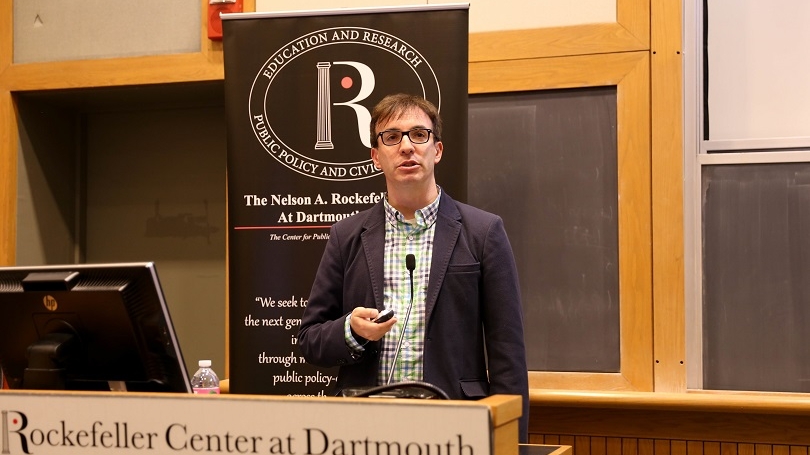
Menu
- Public Policy
- Leadership
- Funding
- News & Events
- About the Center
Back to Top Nav
Back to Top Nav
Back to Top Nav
Back to Top Nav
American imperialism and the idea of an American Empire are topics often discussed in debates over contemporary foreign policy. However, the expansion into what now is the American West is rarely framed in such terms. Expansion westward involved complex federal politics, regulation of settlement patterns, and the push for racial exclusion in the quest for a “white settler nation.”
On Thursday, May 11 Paul Frymer, a professor of Politics and Director of the Program in Law and Public Affairs at Princeton University, examined the politics of American expansionism in the 19th century. He discussed how expansion was influenced by a variety of factors, including conflicts over race and an overarching desire for a white settler nation. In particular, he focused on the role of the federal government in regulating settlement patterns to determine where and how expansion occurred.
This spring Frymer’s most recent book, Building an American Empire: The Era of Territorial and Political Expansion was published by Princeton University Press. At Princeton, Frymer teaches and writes on American law and politics, and the intersection of said disciplines with democratic representation, race and civil rights, and labor and employment. Before his installment in 2015 as the Director of Law and Public Affairs at Princeton, Frymer was a fellow in the program and served two terms as its Acting Director. He has written two books: Uneasy Alliances: Race and Party Competition in America (reissued in 2010 with an afterward on President Obama's election) and Black and Blue: African Americans, the Labor Movement, and the Decline of the Democratic Party (2008). He writing covers political parties, the impact of race in responses to Hurricane Katrina, affirmative action, and politics in American territorial expansion.
Submitted by Olivia Bewley ’19, Rockefeller Center Student Program Assistant for Public Programs
The views and opinions expressed and any materials presented during a public program are the speaker’s own and do not necessarily represent the views and opinions of the Rockefeller Center or constitute an endorsement by the Center.